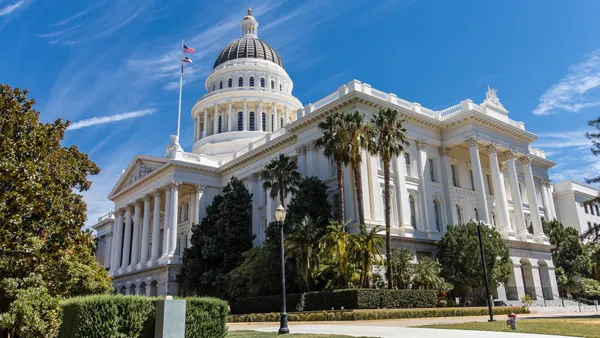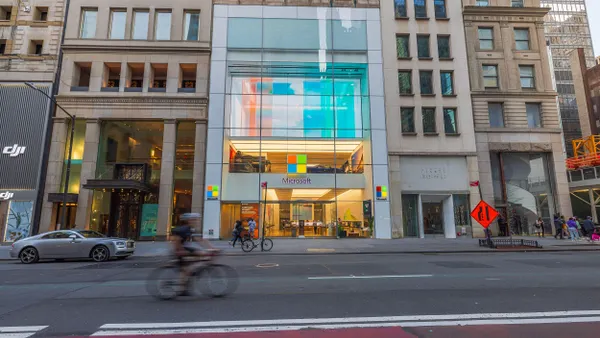Dive Brief:
- Mars has reduced greenhouse gas emissions across its supply chain by 16.4% compared to a 2015 baseline, according to the company’s 2024 sustainability report released last week. The company achieved a 1.9% emissions reduction last year alone, compared to the same baseline.
- Mars attributed most of its reduced carbon footprint to an increased reliance on agricultural partnerships. The company said it supported over 60 climate-forward agricultural projects across 29 countries in 2024, which reduced carbon emissions and also enhanced soil health, improved water quality and water management techniques.
- In addition to cutting its overall emissions, the confectionery and food product manufacturer also launched the Mars Sustainable Investment Fund last week. The $250 million fund aims to financially support companies that are developing solutions that address major industry sustainability challenges.
Dive Insight:
The McLean, Virginia-based multinational — which is behind brands like Snickers, Twix, Altoids, M&M’s and its namesake chocolate, Mars — said it was able to cut its carbon footprint without hindering its growth over the same time period. Since 2015, the company has grown 69% to around $55 billion in annual net sales, according to Mars’ sustainability report.
Mars said it was able to procure 58% of its electricity from renewable energy sources in 2024, which is in line with the company’s broader goal of utilizing 100% renewable electricity for its operations by 2040. Mars also has a target of halving its total emissions across its value chain by 2030, compared to 2015, and achieving net-zero status by 2050.
The company also reported that 64.1% of its consumer-facing packaging is designed to be reusable, recyclable or compostable, up from the 61% it reported in 2023.
“We’re firmly committed not just to targets in a distant future but to delivering progress now,” Mars Chief Sustainability Officer Alastair Child said in last week’s release. “In order to do this, societal impact goals have to be built into business decision making.”
However, the CSO noted that delivering meaningful climate action requires collaboration with other players across the supply chain, such as governments, industry and farmers. “We know we can’t do this alone and so we want to bring our partners and peers along, as only large-scale change will deliver on our collective goals,” Child added.
Mars said in the July 1 release that it has implemented an approach that “embeds sustainability into how it does business.” Last year, the company expanded the number of senior executives who have their compensation tied to greenhouse emissions reductions — alongside other business performance metrics — from 400 to 2,000, Mars reported.
As part of its commitment to combining business with sustainability, Mars said its new fund will deploy capital across investment funds and through direct investments. MSIF will focus on advancing agricultural technologies, developing lower emission alternative ingredients and raw materials and designing circular packaging that is recyclable, compostable or offers bio-benign replacements for flexible plastics.
Earlier this year, Mars made a five-year, $27 million investment to incentivize farmers to reduce dairy farming carbon emissions. The financing is part of the company’s Farmer Forward Program, created in partnership with dairy co-operative Fonterra, and looks to curb the company’s dairy emissions. Dairy is the fourth-largest contributor to the candy maker’s carbon footprint, Mars reported in February.












